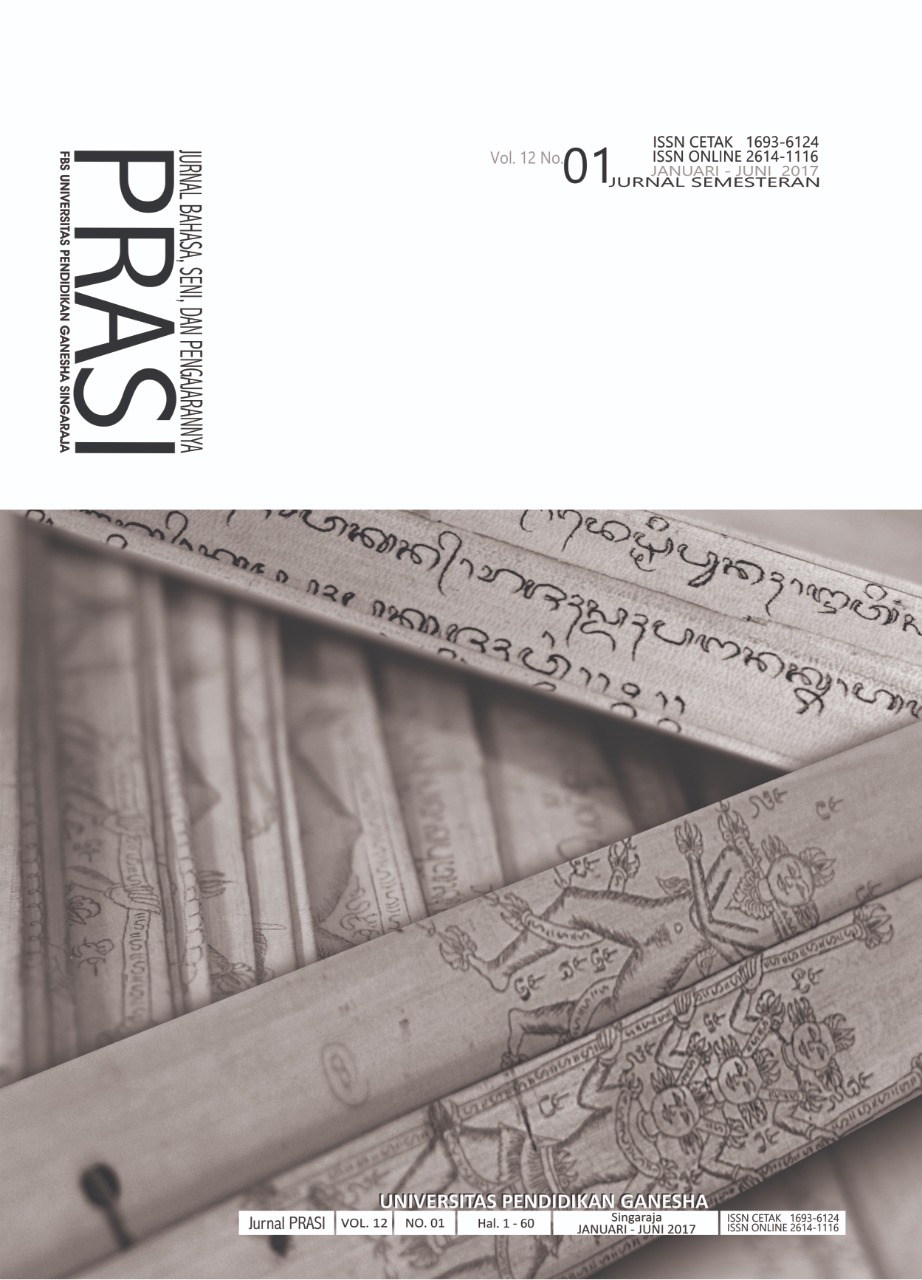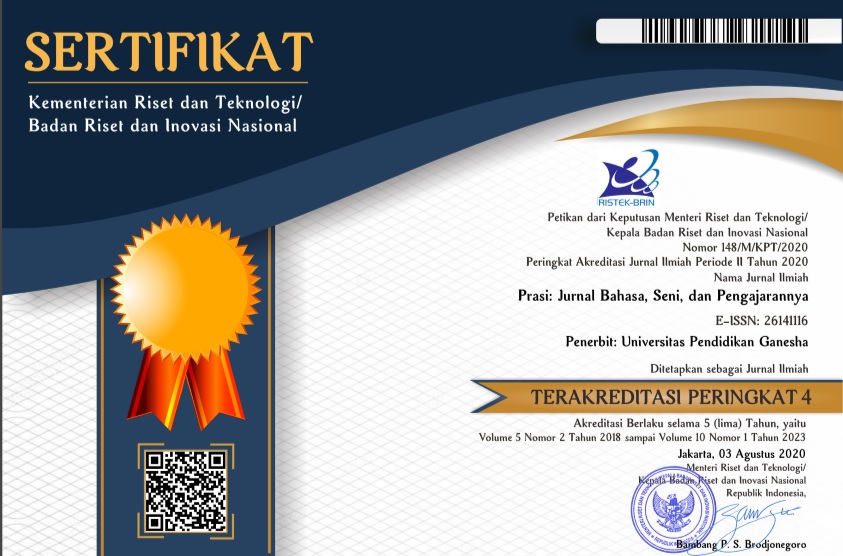VERBA MEMUKUL DALAM BAHASA BALI KAJIAN METABAHASA SEMANTIK
DOI:
https://doi.org/10.23887/prasi.v12i01.13915Abstract
Balinese language as Balinese Lingua franca still has rules in speaking. There many Balinese words that are not familiar even neglected in this era, one of those is verb. There are many verbs in Balinese, but researcher just wants to focus on one verb, that is ngetok seen from metalanguagenatural semantics. The verb ngetok has 32 similar meanings as follows; “ngebug, ngedig, nigtig, ngupek, magambel, mugpugin, mukpukin, ngukul, nungting, ngempug, nyakcak, noktok, ngeplokin, nebuk, ngaasin, nepung, ngintuk, ngalocok, namplak, nyemés, nempéléng, nyagur, nyepédin, nglamet, ngamplongin, ngamplengin, ngemplangin, nglentangin, ngaplekin, nyontok, nylimed and mentil.” From the whole verb forms of “ngetok” there are differences of each form seen from the wat of hitting related to the device used to hit, subject and object being hit. Verb in Balinese has to different meanings, that can be explained by explication technique of X does something on Y, something good or bad happens on Y. The difference of meaning was gained from the analysis of original meaning with uncomposed polysemi.Downloads
Published
2017-06-25
Issue
Section
Articles
License
Authors who publish with Prasi agree to the following terms:- Authors retain copyright and grant the journal the right of first publication with the work simultaneously licensed under a Creative Commons Attribution License (CC BY-SA 4.0) that allows others to share the work with an acknowledgment of the work's authorship and initial publication in this journal
- Authors are able to enter into separate, additional contractual arrangements for the non-exclusive distribution of the journal's published version of the work (e.g., post it to an institutional repository or publish it in a book), with an acknowledgment of its initial publication in this journal.
- Authors are permitted and encouraged to post their work online (e.g., in institutional repositories or on their website) prior to and during the submission process, as it can lead to productive exchanges, as well as earlier and greater citation of published work. (See The Effect of Open Access)


.png)
.png)









